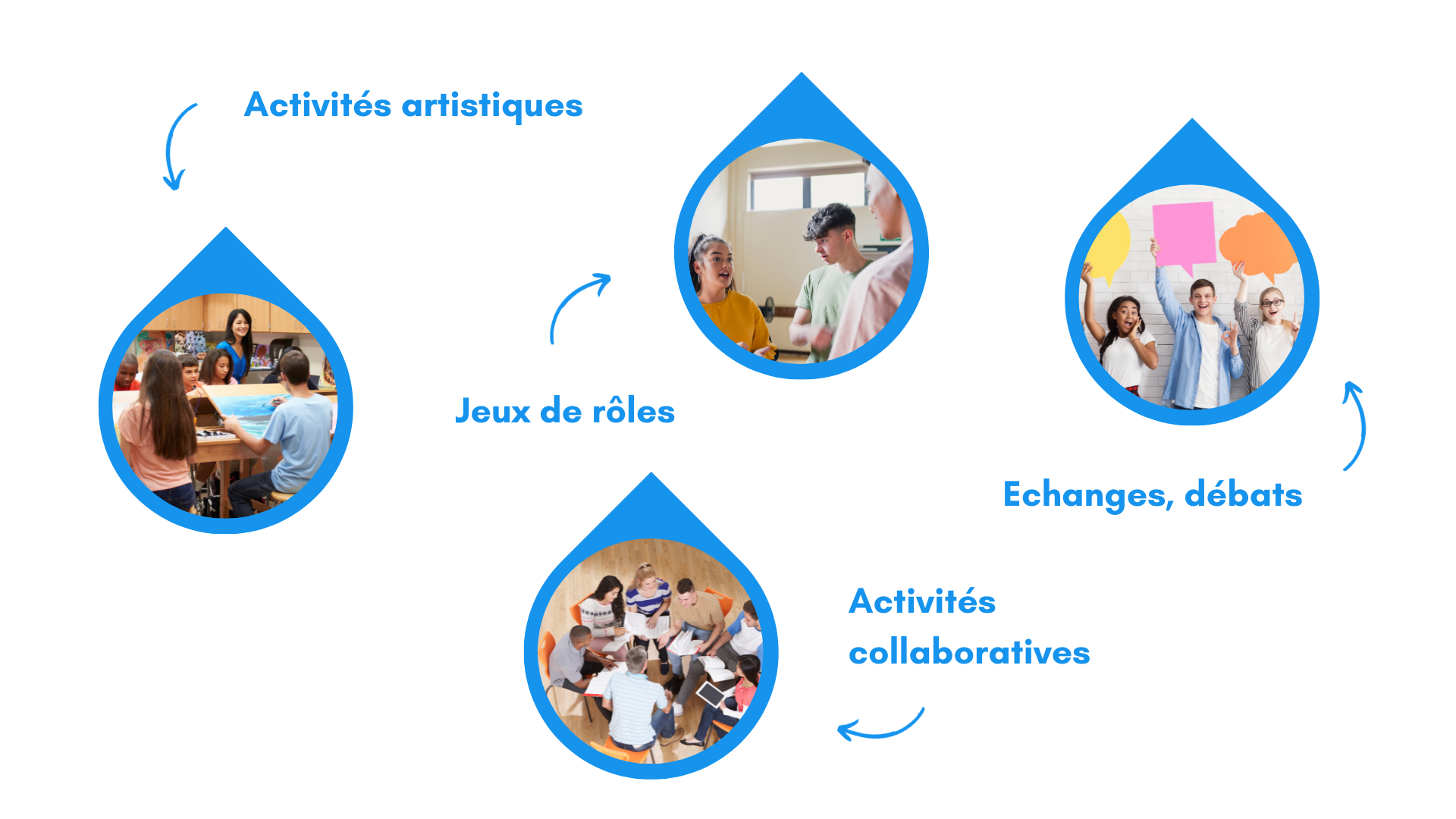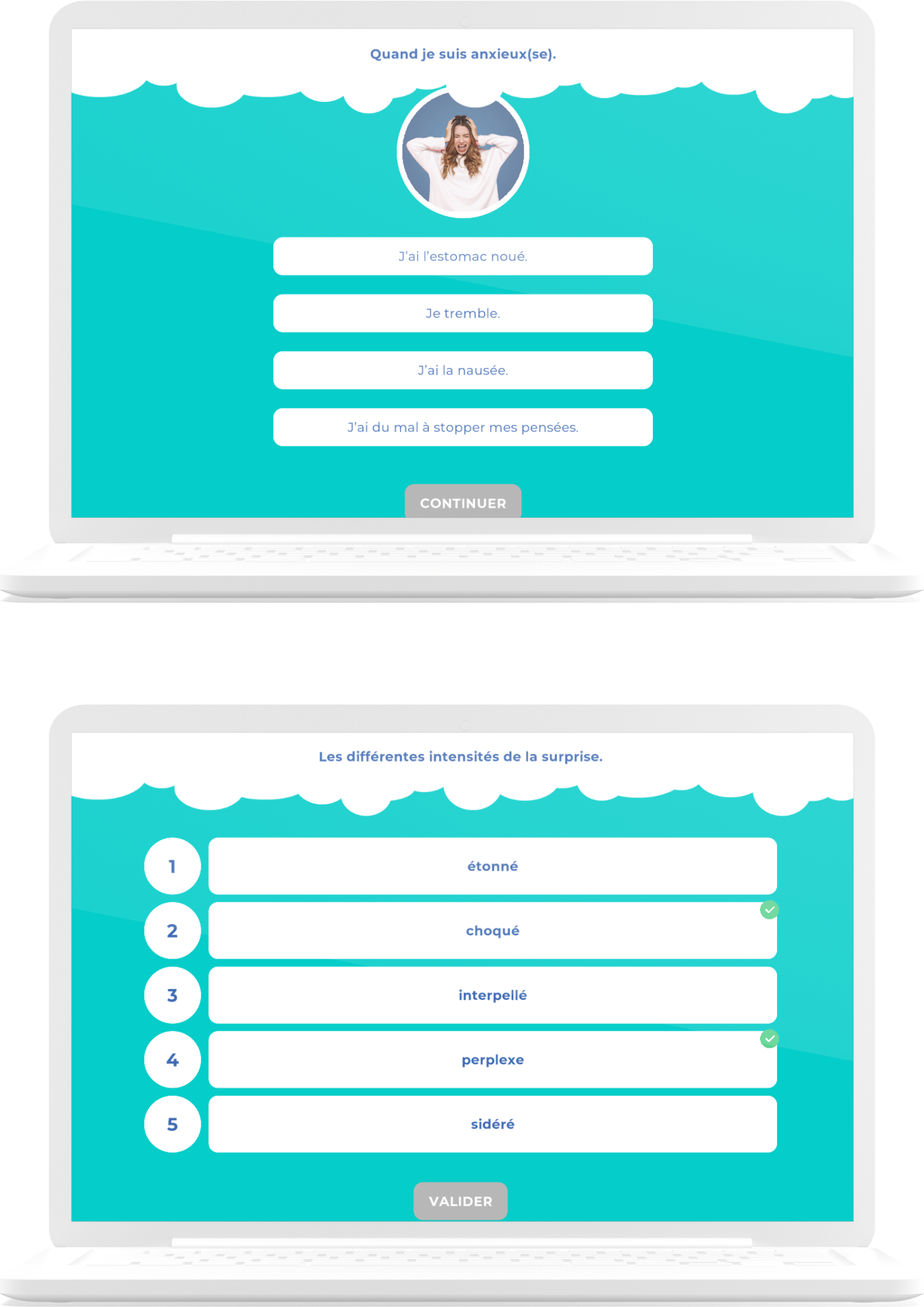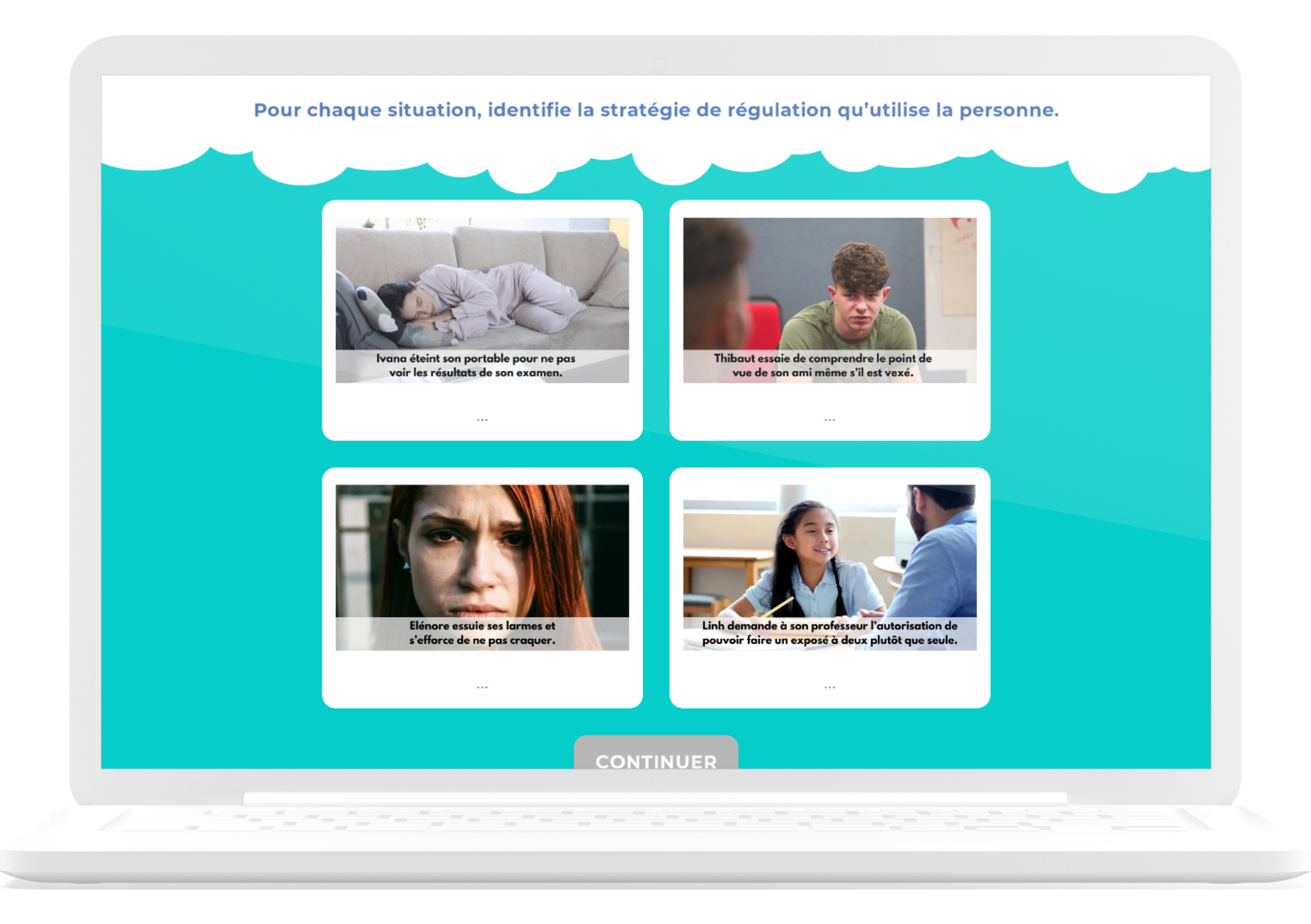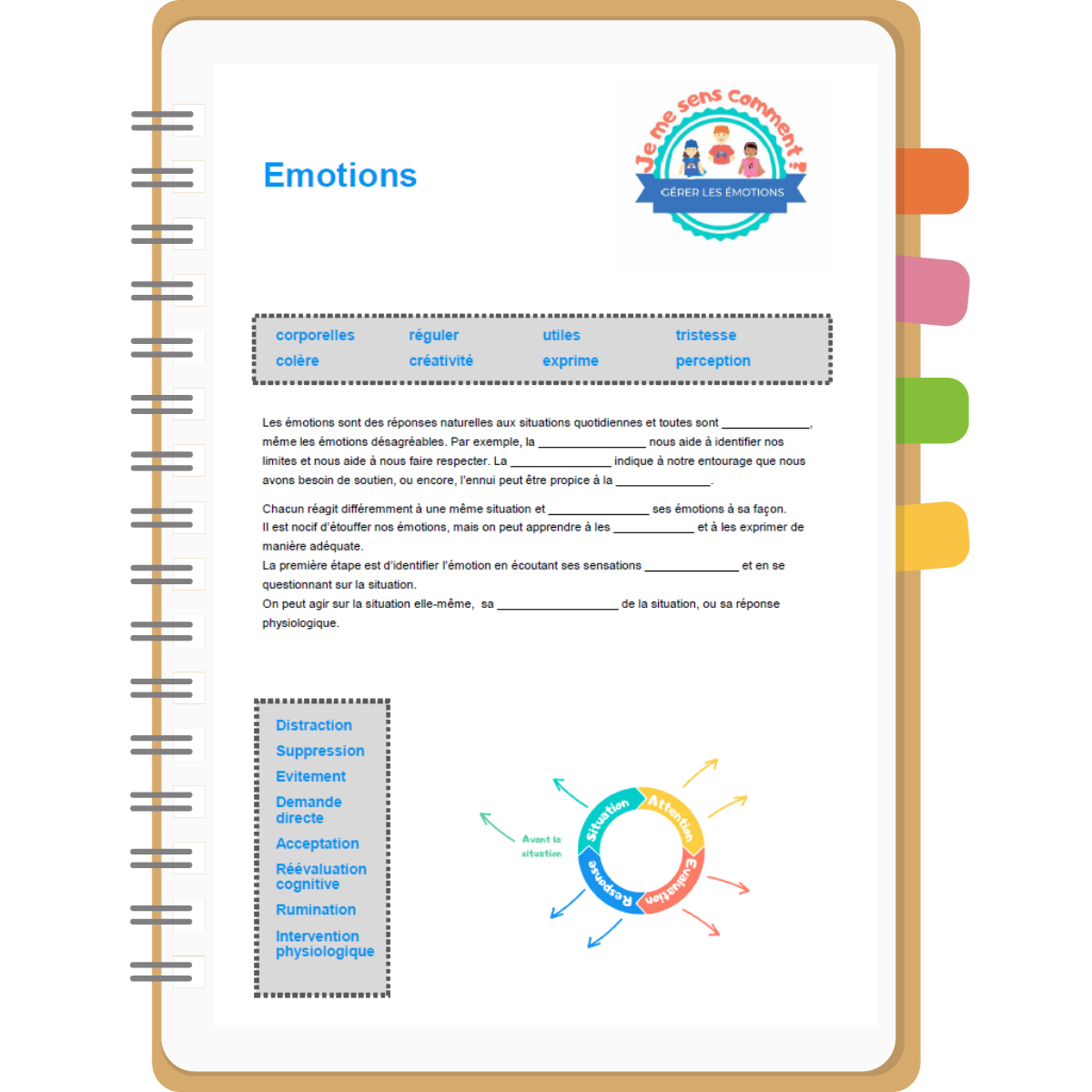EMOTIONAL MANAGEMENT PROGRAM CYCLE 4
Findings on managing emotions
Managing emotions is essential to well-being. But did you know that emotional states and metacognitive feelings have been shown to have a powerful impact on learning?
And according to the 2018 PISA results, France ranks 62nd out of 65 OECD countries in terms of student anxiety!
What do the national education programs say?
The theme of emotions appears in various subjects: French, Arts, EPS, Moral and Civic Education. The aim is to "resolve conflicts without aggression, and avoid resorting to violence by mastering the means of expression, communication and argumentation".


OUR program objectives "EMOTION MANAGEMENT
- Identifying emotions and their usefulness
- Feel emotions and their intensity in your body
- Regulating your emotions
- Communicating emotions and accepting those of others
The program in detail
Session 1:
Students will evaluate and enrich their lexicon for describing emotions with a swipe game. Then they'll explore the emotions they feel in various situations, and their usefulness. Finally, a poetic creation will enable them to explore and express their emotions through writing.
Session 2:
Students will ask themselves about the sensations provoked by emotions. They will also classify emotions in order of intensity. Finally, a sophrology exercise will help them learn to focus on their bodies to regulate their emotions.
Session 3:
Students will discover the main emotional regulation techniques in a crossword puzzle. They will then reflect on the relevance of these techniques through a multiple-choice test and situations presented in the form of mini-videos. Finally, they will discuss a concrete example and/or perform a sophrology exercise on stress regulation.
Session 4:
Students will study the communication of emotions through various novel excerpts. Then they'll consider how to react with empathy to another's anger. Finally, they'll experiment with expressing emotions through an artistic activity or theatrical games.
Session 5:
Finally, the students collectively review what they have learned during the sequence, and keep a written record.
Our edutainment approach
Our approach combines independent games on tablet/computer and classroom activities.
Why use digital technology to work on CPS?
A variety of games enable students to reflect on themselves and discover best practices in concrete, everyday situations.
Ergonomics and easy-to-understand instructions encourage intuitive use by students: sorting games, drag & drop, MCQs, mazes, sophrology, etc.
Then a class activity is proposed. This could be, for example :
> a collective exchange or debate to develop opinions
> a role-playing game to put into practice what has been learned
> a small-group activity to consolidate what has been learned and learn to collaborate
> an artistic activity to develop creativity
> an activity to formalize what has been learned, such as application exercises or the creation of a written record.

A turnkey tool
In your teacher interface, you will have access to all the resources you need to implement the session:
- student tracking charts
- step-by-step teaching guides for easy-to-use sessions
- student materials to be projected or photocopied
- a proposed yearly progression and references to official programs
- instructions for use
To sum up:
The Emotion Management program will help your students recognize and regulate their emotions, and develop their emotional intelligence. By increasing their capacity for empathy, you promote a good classroom climate and conditions conducive to learning.











